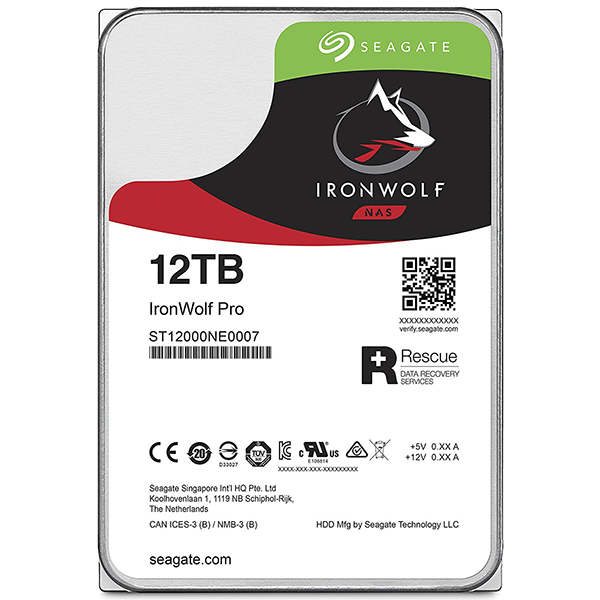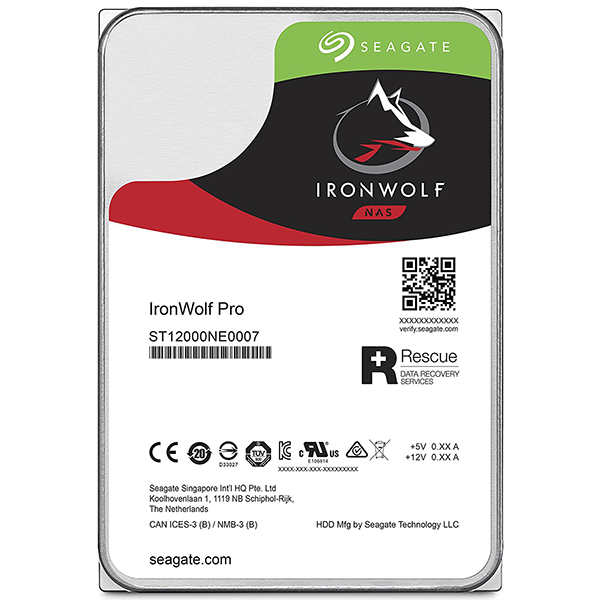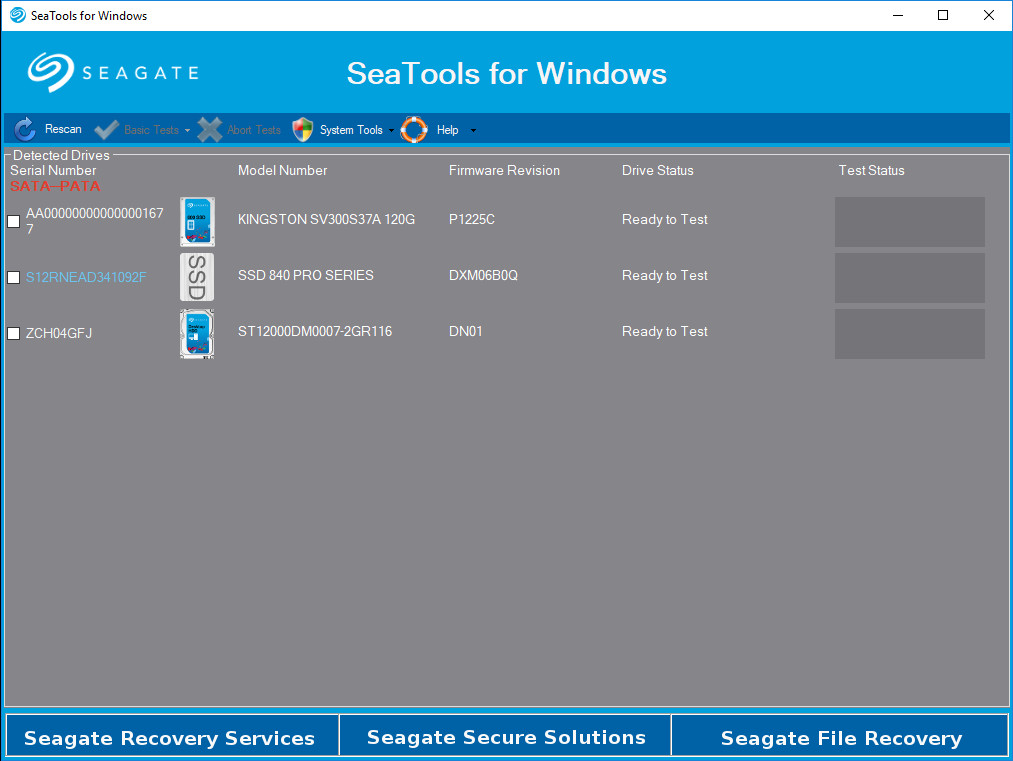Early Verdict
The Seagate IronWolf Pro has a larger warranty, better endurance, and more features than the mainstream model, but look downstream if you simply want a high-performance array at the best price. When you build your dream array with up to twelve disks, the IronWolf Pro has the additional features you'll need to keep the system happy.
Pros
- +
High sequential performance
- +
High random performance for a spinning disk
- +
Long five-year warranty
- +
Innovative in-NAS monitoring and reporting
- +
High quality design and construction
Cons
- -
Expensive
Why you can trust Tom's Hardware
Features & Specifications
The 7,200-RPM IronWolf Pro is Seagate's high-performance drive, but the company's earlier improvements to the lower-cost IronWolf series have pushed the Pro series further upstream. You now have to look past pure performance to get the most out of this premium model. Today, we'll see what extra benefits come with the Pro series and investigate if you still need to pay a premium to get the best performance.
The 6TB to 12TB IronWolf series now comes with a standard 7,200-RPM spindle speed, so many shoppers no longer look to the IronWolf Pro models for increased performance. The two series feature identical sequential performance specifications, but there is still a big price gap between the models. The IronWolf Pro still brings advanced features, but there are differences between the two high-quality NAS-focused HDDs.
Specifications
The IronWolf Pro series consists of six models that range from 2TB to 12TB. The 7,200-RPM drives all feature RV sensors. The mid-range models provide 214 MB/s of sequential read/write throughput, but the two bookend products differ. The 12TB IronWolf Pro we're testing today provides 250 MB/s and the 2TB delivers just 195MB/s. An Avago controller, backed by a 256MB DRAM buffer, is at the heart of each drive.
The high-capacity IronWolf drives also ship with 7,200-RPM motors, but the IronWolf Pro offers increased workload resilience, warranty, data protection, and overall quality. Seagate warranties the mainstream IronWolf for 180TB of data writes per year, while the IronWolf Pro is rated for 300TB. The drive also supports up to 600,000 load/unload cycles, which is on-par with many enterprise HDDs.
The IronWolf Pro features a full five-year warranty, which is two years longer than the IronWolf warranty. That's not the most significant upgrade to the warranty, though. The Pro models also include two years of free access to Seagate's Rescue Data Recovery Service, but you'll need to register the drives. If your drive fails, you simply send it to Seagate and they recover the data and send you a new drive. You have to pay extra for this service with the basic IronWolf HDDs.
Features
Seagate designed its AgileArray technology to provide a better user experience. Here's how the company describes the feature set:
- NAS-optimized hard drive for the best possible user experience
- IronWolf Health Management in compatible NAS systems continuously helps to safeguard the health of your data
- Drive balance with Rotational Vibration (RV) sensors - manages multi-bay vibration for long-term consistent performance and reliability
- RAID performance optimized - maximizes responsiveness and uptime with NAS-aware Error Recovery Control
- Advanced power management - saves energy and delivers the right power at the right time
Seagate continues to add features to the IronWolf product family by working with partners to offer advanced NAS monitoring services with the IronWolf Health Management application. Several popular NAS companies, like Asustor and Synology, have already released firmware upgrades that support the advanced IronWolf management and reporting features.
Get Tom's Hardware's best news and in-depth reviews, straight to your inbox.
The IronWolf Pros are also scalable. Seagate designed the basic IronWolf for systems with between one and eight drives, but the IronWolf Pro is designed for systems with up to 16 drives. There is more to the story, though. In a rackmount environment, you'll also need to worry about vibrations emanating from other systems, but the IronWolf Pro's RV sensors help ensure steady performance.
Pricing, Warranty & Endurance
The IronWolf Pro HDDs are more expensive than the base IronWolf series. The 12TB Pro currently retails for $469.99 at Newegg, and the base IronWolf is only $429.99. The pricing gap is proportional as we move down the capacity range. The 6TB Pro retails for $257.97, and the IronWolf is $189.99. The 1TB to 4TB IronWolf are 5,900-RPM drives, so prices drop quickly. The 2TB Pro sells for $129.99, but the IronWolf model is just $79.99. Of course, buying drives for a NAS multiplies pricing quickly. A $60 price difference per drive turns into $300 with just five drives.
The IronWolf Pro series comes with the aforementioned five-year warranty that covers a 300TB-a-year workload. This series also comes with Seagate's Rescue Data Recovery Service for two years.
Software
Seagate offers two pieces of software with the drive. Seagate's SeaTools is a basic management application the company has offered for at least the last 15 years. The user interface shows its age. DiskWizard is more modern. You can think of it as a limited-feature Acronis with the disk cloning features enabled.
DiscWizard makes adding a new hard drive much easier. It can be used in several different ways. For example, you can use it to copy all the data from an old drive to the new one. The new drive will have the operating system, and it will be bootable. DiscWizard can also partition and format a new drive for additional storage.
A Closer Look
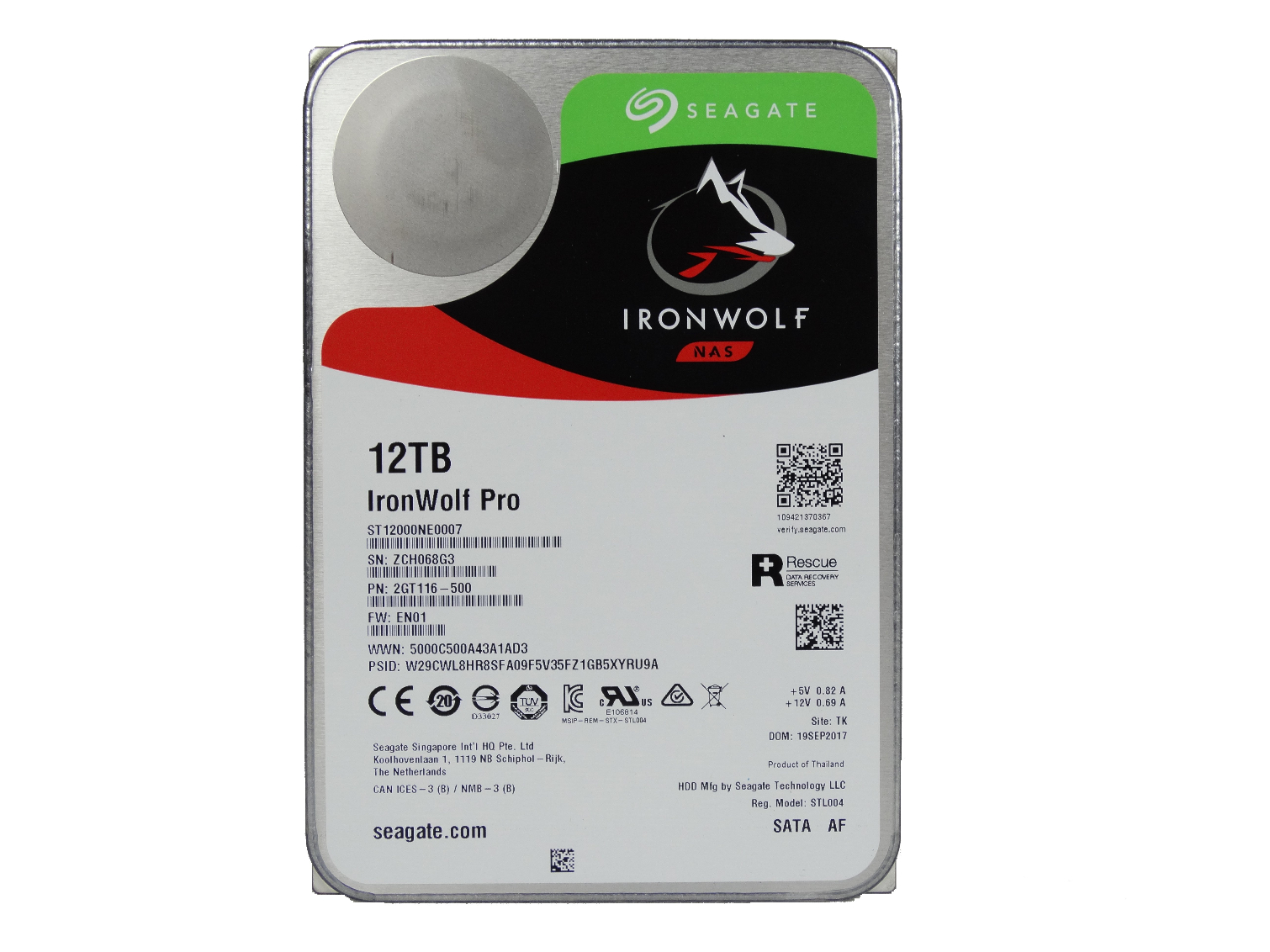
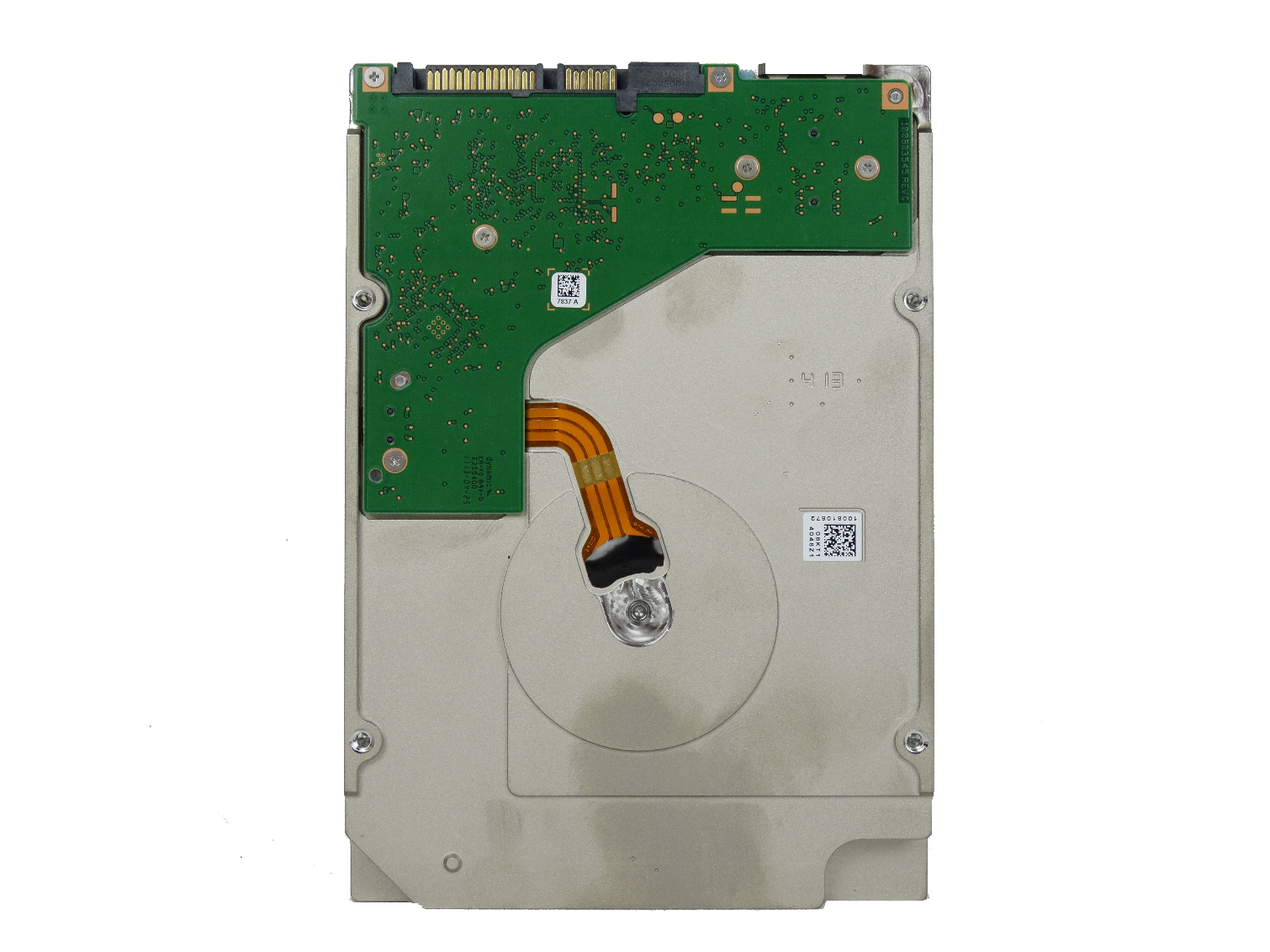
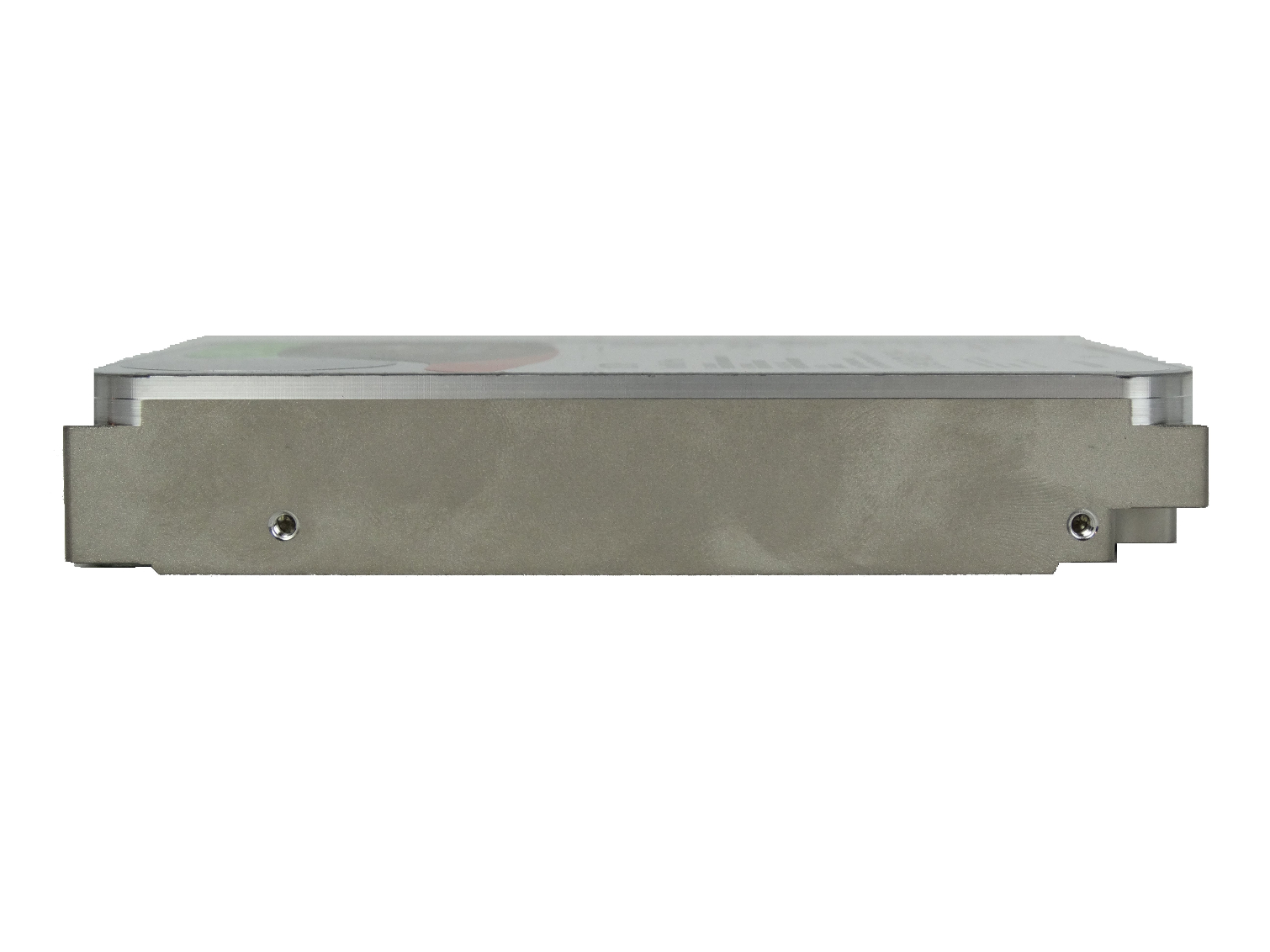
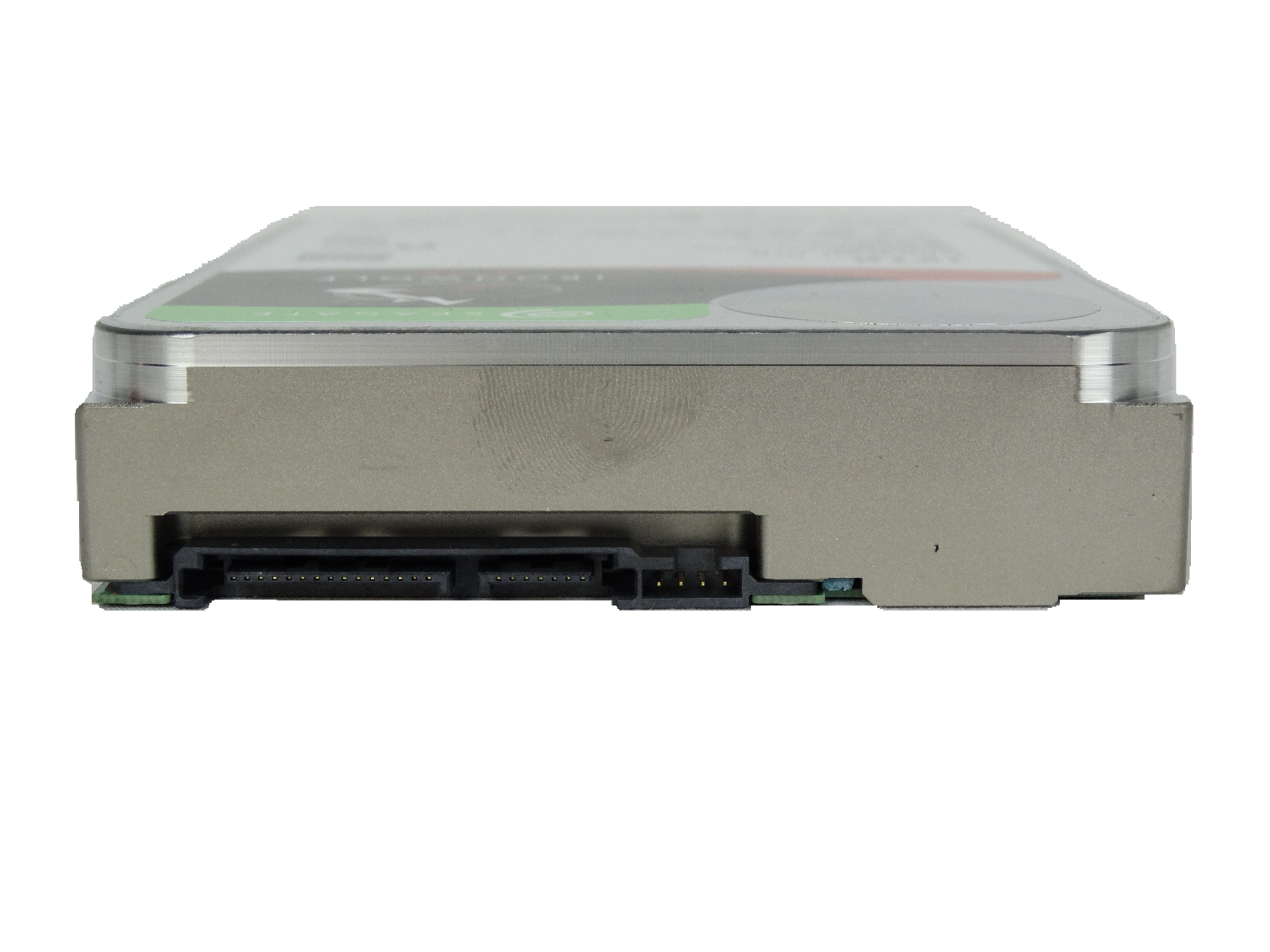
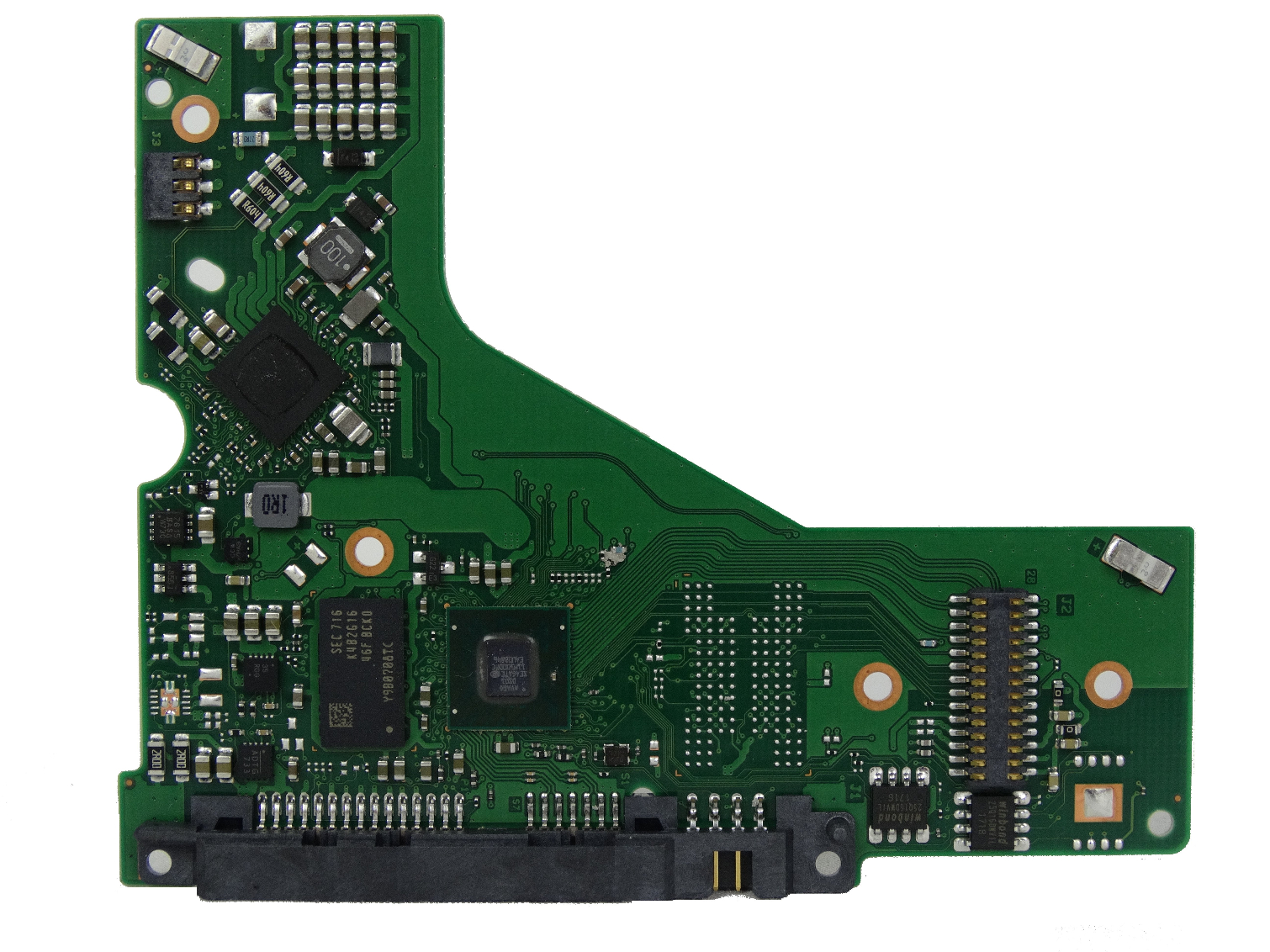
Our drives came bundled in bulk packaging, so we didn't receive a retail package. The drive is fairly standard for a high-capacity, high-platter-count drive. You will notice the drive lacks ventilation holes like older drives. These drives are filled with Helium to reduce the drag on the platters and other components inside the case.
MORE: Best SSDs
MORE: How We Test HDDs And SSDs
MORE: All SSD Content

Chris Ramseyer was a senior contributing editor for Tom's Hardware. He tested and reviewed consumer storage.
-
shrapnel_indie Hmmm... a takeaway from this seems like WD has intentionally made sure the HGST brand trails their own WD Reds in performance. Shame on them. (Of course, this might be model/capacity specific.)Reply -
svan71 Still waiting for hard drive prices to come down, or was there another earthquake or typhoon?Reply -
2Be_or_Not2Be Ignoring the warranty/data recovery service, does the Ironwolf Pro offer NAS-specific features that justify going with it over the regular Ironwolf models?Reply
I saw the blurb about RV sensors, but the non-Pro model has it as well. The only thing I can see that otherwise differentiates them is the workload rating (180TB/yr vs 300TB/yr). -
dextermat We need reliability test with huge hard drive. Considering the impact of losing important data. Also failing rate %.Reply -
achilles174 The impact is losing data is not unique to large drives and the solution is the same as it's always been - redundancy, whether it's RAID5/6 or ZFS. Yes, maybe you don't want to spend $1000 on two 12TB drives just for redundancy, but now you have a dollar amount to go with how important the data really is to you. In an 8 drive setup you'd still get 6x12 = 72TB.Reply -
Jesse_20 **EDIT:**Reply
Refreshing the page raised the $219 price tag on the 12TB to $469, a bit more expected. -
Co BIY I'd like to see an article with a 2 TB HDD paired with Intel Optane memory cache up against the SSD drives.Reply
With the proliferation of video especially security video I wouldn't be too surprised if HDDs set new sales records despite SSDs. -
JP76 Moved away from Seagate a few years ago after a bad experience with two of their drives on my NAS. I currently own 12 WD Red hard drives (2Tb and 3Tb) and had zero issues with them over the last few years. Other people might have a different experience, but I would take them over the Seagates anytime (even if they're 5,400-RPMs).Reply -
jasonelmore I don't mind paying $400 for a drive if it'll work for 5 years or more. Seagate's reputation has seen it's ups and downs. It was a good idea to invest in quality materials and engineering, and then back that reliability up with recovery services.Reply
